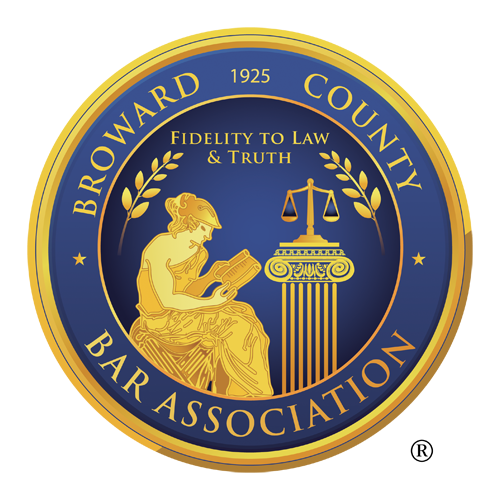Mediation of Equine Law Disputes May Be Your Best Bet
by Jeffrey H. Marcus and Bruce A. Blitman
The economic impact of the equine industry in Florida is estimated to result in $6.5 billion gross domestic product.[1] But horses are expensive animals and things can go wrong. If things go wrong and you end up in a legal dispute, then mediation can be an effective way to resolve your legal dispute. This article will describe some of the kinds of equine legal disputes. We’ll tell you why mediation may be optimal and identify the kinds of disputes for which mediation may be more suitable, and those kinds of disputes for which mediation may be less suitable. We will give some practical suggestions on mediation of equine law disputes.
As the title of this article implies, horse breeding is one of the kinds of equine activities that can give rise to legal disputes. Much of horse breeding is conducted pursuant to contracts, the breach of which have legal consequences, including litigation.
Horse sales are subject to legal disputes as well. Horses are considered “goods” under Florida law, so horse sales are subject to Article 2 of Florida’s Uniform Commercial Code.[2] If the legal issues are material, then legal disputes may arise.
Forty-eight states have enacted equine activity laws.[3] These laws generally provide for owners and operators of equine activities to be immune from liability. But despite such equine activity laws, horse and barn owners and operators may still be sued. The fact patterns may differ, but often include the failure to post the proper notice, the failure to get a proper signed release, or circumstances that fall under one or more express exceptions under the relevant equine activity law.[4]
Mediation can be particularly useful in equine disputes for the following reasons:
- Mediation offers the parties a greater possibility of preserving their business relationship.
- Solutions which the parties negotiate themselves may be more flexible or imaginative than the legal remedies available in court. For example, the parties may negotiate for the sale of a replacement horse, and the sale of the original horse to a third party.
- Early resolution through mediation can result in a horse being returned to the seller and resold, and the buyer getting back the purchase price.
Mediation may work better than other forms of dispute resolution in the following kinds of disputes:
- Disputes over contracts of sale.
- Disputes between owners and veterinarians or farriers.
- Disputes arising from the transportation of horses.
- Disputes over horse training agreements.
- Breeding contract disputes.
- Disputes involving personal injury or property damage related to equine activity.
- Disputes arising from construction work of equine facilities.
There are certain types of equine legal disputes for which mediation may not work as well as others, such as the following:
- Disputes in which the factual determination is outcome determinative. For example, a dispute over whether a horse received the proper medication or not would depend on a factual finding that might be based on a blood or urine test.
- Landlord tenant eviction disputes.
- Stablemen’s lien disputes.
- Disputes in which the insurance carrier may not want mediation.
Selection of a mediator for equine law disputes is important to the process. Skilled mediators are accustomed to dealing with specialized industries and related concepts and terminology. In equine disputes, pre-mediation conferences would be a great way for mediators to learn about the things they need to know in order to prepare optimally for the mediation.
The Florida Bar Animal Law Section (ALS) is a good place to start in the selection of a mediator for equine law disputes. The ALS website lists members and their profiles.[5] The recently formed Equine Law Committee of the ALS stands ready to assist attorneys and the public concerning the practice of equine law.
We humans love our animals passionately. Our passion extends to the lengths to which we will go to protect and fight for them. We have offered some keen insights into why and how mediation of equine law disputes is worth considering when passions run high and result in equine law disputes.
Jeffrey H. Marcus is in solo practice in Wellington. His practice focuses on business law, employment law, equine law and mediation. He is a Florida Supreme Court Civil Circuit Certified Mediator. He is admitted in Florida, New York and Pennsylvania. Jeff can be contacted at https://marcuslawoffice.com.
BRUCE A. BLITMAN is certified by the Florida Supreme Court as a Circuit, Family and County Court Mediator. Since 1989, Bruce has mediated thousands of disputes throughout Florida and lectured and written extensively about the benefits of ADR. He recently relocated from Broward County to Palm Beach County and can be contacted at [email protected].
This article was originally published in the September 2018 edition of the Palm Beach County Bar Association’s Bulletin magazine
[1] The State of Florida Department of Agriculture and Consumer Services, The Florida Horse Industry Brochure (2015).
[2] See Zendejas v. Redman, Case 9:15-CV-81229-KAM (S.D. Fla 2016).
[3] See Michigan State University College of Law ANIMAL LEGAL & HISTORICAL CENTER Map of Equine Activity Liability Statutes (December 2017) website at URL: https://www.animallaw.info/content/map-equine-activity-liability-statutes. (Only California and Maryland do not have equine activity laws.)
[4] A broader discussion of state equine activity liability laws is beyond the scope of this article. For a more in-depth treatment of this important topic, please see Julie I. Fershtman, Equine Activity Liability Acts, Recurring Issues Impacting Insurers and Their Insureds, International Risk Management Institute, Inc. AgriCon Conference Paper (2016); Michigan State University College of Law ANIMAL LEGAL & HISTORICAL CENTER, Detailed Discussion of the Equine Activity Liability Act (2003).
[5] See ALS Membership webpage at URL: https://www.floridabar.org/about/section/section-an-mbrs/.
